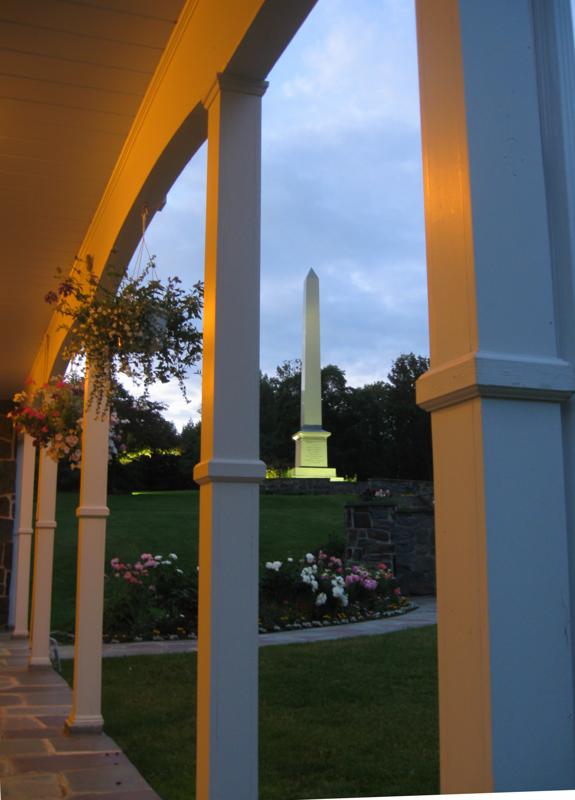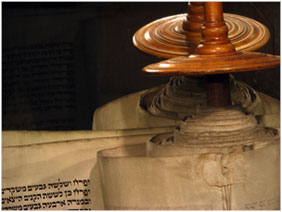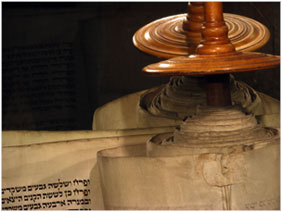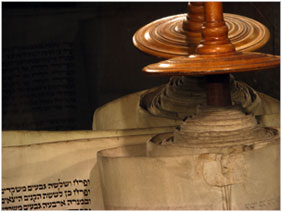-
•
•
26 responses
Last Sunday, we attended a family member’s baby blessing in a Spanish Ward in Utah. My rudimentary high school Spanish was no help at all. Read More
-
•
•
The Story This week’s lesson focuses on the construction of the first temple. Previously there had been many places for offering sacrifices and several buildings that we would call temples. But this is the first one built on the site traditionally associated with Abraham’s sacrifice of Isaac. As this temple came to prominence, it overshadowed the others and, by the time of the return from Babylon, it became the only one recognized. The first two chapters of 1 Kings are the background for that temple-building. Chapters 1-2 deal with the final days of David, when his son, Adonijah, aided by… Read More
-
•
•
39 responses

The post is brought to you by my wife, Heather. Please be nice to her :) ****** It was time for Dane and I to have a discussion — the, “our baby is approaching 15 months old, do we want to have another one?” discussion. We currently have three wonderful, healthy children. At one point in this discussion I told my husband that I would probably feel guilty for not having more. He was surprised and asked why I should feel guilty. So I told him and the answer surprised him even more. Actually, this is why I am writing… Read More
-
•
•
18 responses
I probably shouldn’t tell you this, but on more than one occasion, I have seriously considered stealing scriptures from the temple. Read More
-
•
•
2 responses
Google maps has added aerial views to a limited number of locations. I just saw (hat tip: Paula) that the San Diego temple is one of them. It’s a pretty cool feature. How do you see it? Unfortunately there’s no one-click link, because you have to enable aerial views. So it’s a slightly more elaborate process: 1. Go to the San Diego temple on Google Maps. (Click here.) 2. Click the little green “Labs” chemical-beaker icon at the top of the screen. (It’s above the Print button). Click “enable” on the tab that asks about Aerial Imagery. That’s it! You… Read More
-
•
•
5 responses
The preliminary program for the Sunstone symposium is available, and includes many familiar names. Some of the bloggernacle folks who are listed include: Wednesday: 9:30 – John Dehlin (Mormon Stories) 2:00 – John Dehlin Thursday: 11:15 – Mormon feminism panel including Alisa (ExII) and Tresa (FMH) 2:15 – Tresa (respondent to Laura Compton) 4:45 – Janet, Kathy, Tresa, and Tracy – Joanna Brooks (Mormon Matters) Friday: 3:30 – Bridget Jack Meyers Jeffries 4:45 – Sheila and Sara panel -Mormon women on tour panel (Joanna Brooks, Holly Welker) 8:00 – Tracy (BCC) Saturday: 11:15 – DKL talking about Glenn Beck. Bring… Read More
-
•
•
2 responses
After retirement, my father turned to family history and temple work to fill his time. Most of this work has focused on researching ancestors from Virginia and North Carolina. I took this photo at a cemetery in Carrol County, VA, near the the birthplace of my father’s grandparents. My father is shown in the picture. While in the cemetery he was able to locate headstones of people for whom he had completed temple work. It was the first and only time that my father has visited this place that has taken so much of his attention. As a side note,… Read More
-
•
•
16 responses

I took a stroll through the End of the World last week. Brought the wife and kids and a picnic lunch. It was beautiful, as always. But one of these days (and it won’t be long) it will be gone. Maybe us too. Read More
-
Church History, General Doctrine, Philosophy and Theology, Scriptures, SS Lesson – Doctrine and Covenants
•
•
31 responses

I have been working on a paper looking at the Doctrine and Covenants, and my research has me thinking about how the texts of modern revelation were produced. I think that there are a lot of Mormons who assume that the words of the revelations in the Doctrine and Covenants were dictated word for word to Joseph. On this model, the Doctrine and Covenants is rather like the Qua’ran, which also consists of a series of revelations given to a prophet over a period of years in response to concrete historial circumstances. Pious Muslims affirm that the Qua’ran was dictated… Read More
-
•
•
21 responses

I’m hungry. I need a hot dog. Nate’s Dawgs smells delicious, but they’re a little pricey. Joe’s Rolled Meats are cheap, but they taste like cigars. Trader Moe’s dogs are additive free, so I guess they’re healthier than the others. But the girl at the Delirama counter is a total babe. How can I possibly select the optimal hot dog stand? Read More
-
•
•
28 responses
In a PEW survey a few months back, 24% of American adults indicated that they believed in reincarnation (ie, that people will be reborn into this world again and again). Apparently many Christians don’t have a problem overlapping their Christianity with Eastern beliefs. Read More
-
•
•
4 responses

“I was born in the year of our Lord one thousand eight hundred and five, on the twenty-third day of December, in the town of Sharon, Windsor county, State of Vermont.” Joseph Smith History 1:3 By Gary Boatright Jr. ___ This picture is part of our ongoing series highlighting Mormon images. Comments to the post are welcome; all comments should be respectful. In addition we invite you to submit your own images to the Mormon Image series. Other images in the series can be found here. Rules and instructions, including submissions guidelines, can be found here. Read More
-
•
•
25 responses

It seems to me that there are two contradictory sets of underlying assumptions about the plan of salvation. One is the “salvation as a game” perspective and the other is “salvation as a journey” perspective. The key difference between a game and a journey is that in a game the rewards are given by people, while in a journey the rewards are obtained from nature. For example, money, gifts, recognition, and grades are rewards given by people. In a game, someone has the authority to bestow the reward. In a job, your boss has the authority to grant your paycheck;… Read More
-
•
•

I’m going to skip my usual whine about how much material is covered in the reading for this lesson (unless announcing that I won’t whine counts as a whine). Overview One traditional division of the book of Psalms—often called “the psalter”—divides it into five sections, on analogy with the five books of Moses: Psalms 1-41, Psalms 42-72, Psalms 73-89, Psalms 90-106; and Psalms 107-150, with Psalm 150 being the closing doxology for the whole collection. Those who accept this division understand the first and second psalms to be an introduction to the psalter as a whole, so some manuscripts give… Read More
-
•
•

2 Samuel 11 Verse 1: What do you make of the fact that the story is set at the time of the year when “kings go forth to battle,” but David sent his army to battle and stayed behind himself? What is the writer telling us about David when he says “But David tarried still at Jerusalem”? (Note: presumably the time when battles could once again commence was at the end of the rainy season, approximately the beginning of May.) Verses 2-5: How do you suppose that David could see Bathsheba bathing? Where do you think people would usually have… Read More
-
•
•
16 responses

I’m going to briefly argue for the general importance and contemporary relevance of the Journal of Discourses. But first, let me say: My grandpa (Max Olsen) is a very good man. Read More
-
•
•
40 responses
This week, the Rochester Stake in New York is sponsoring a special performance of Carol Lynn Pearson’s Facing East, to be followed by a fireside featuring a discussion led by the Rochester Stake President. Notably, the performance is being directed by Jerry Argetsinger, who was the long-time director of the Hill Cumorah Pageant throughout the 90s, and costume design is being handled by Gail Argetsinger, a Tony award-winning costume designer who designed and supervised the construction of thousands of pageant costumes during the 90s. For those unfamiliar with Facing East, it is the story of a Mormon couple who is… Read More
-
•
•
3 responses
We’ve been teaching our oldest son Peter that he’s a big brother to our younger son Jeremy. When Peter learned that Joseph Smith also had a big brother, he fell in love with the concept. Now whenever we go somewhere church-related, he asks, “Will there be a picture of Joseph and Hyrum?” By Robert Gibbons ___ This picture is part of our ongoing series highlighting Mormon images. Comments to the post are welcome; all comments should be respectful. In addition we invite you to submit your own images to the Mormon Image series. Other images in the series can be… Read More
-
•
•
35 responses
Scott at Bloggernacle Times has been putting on a very impressive Behind the Music retrospective about the old Banner of Heaven blog. The hair, the women, the trashed hotel rooms — it’s all there, complete with interviews with band members (Brian G. comes clean about the infamous “no brown M&M’s” contract), groupies band aids, and even the occasional critic. In fact, about the only point that Scott seems to have missed so far is the group’s hidden apologetic purpose. What apologetic purpose, you ask? Only that a widely read book — also widely perceived as hostile towards the church —… Read More
-
•
•
3 responses
Jana Reiss, former T&S guest blogger and author of Mormonism for Dummies, is running a new Mormon blog at Beliefnet: Flunking Sainthood. Put a link in your blogroll (do people still do blogrolls?) and visit often. Having myself previously hosted a Mormon blog at Beliefnet, I have some idea of the challenge the new blog is facing. The problem can be put very simply: (1) few people who aren’t Mormon have much to say about Mormonism, and (2) there aren’t too many Mormons hanging around the Beliefnet site. But it just seems wrong that one of the most popular Internet… Read More
-
•
•
4 responses
Walking hand in hand with my family on Temple Square in April 2009. Taking our one year old daughter for the first time was very special, and as we walked I looked around to ask someone to take our picture. We were alone. As I looked at our shadows, I thought that was a much more powerful image; for me, it invokes the feeling of moving forward and facing the future together. This is my favorite photo from that trip. By Christy D. ___ This picture is part of our ongoing series highlighting Mormon images. Comments to the post are… Read More
-
•
•
40 responses
I finally picked up and read a copy of Simon Southerton’s Losing a Lost Tribe: Native Americans, DNA, and the Mormon Church (Signature, 2004) a couple of weeks ago. Yet I still attended church last week and have not drafted a resignation letter. Inoculation works. There’s nothing particularly new in the book — it summarizes mainstream academic views about the origins of the native inhabitants of the Americas, reviews more recent DNA evidence that confirms the mainstream view, then critiques mainstream LDS beliefs about the Book of Mormon and the peopling of the Americas. It is not a book that… Read More
-
•
•
10 responses

At 3:28 this morning we welcomed a new son into the world. As one would expect, congratulations and well-wishes have come flooding in from friends and family all day. And for all of these we have been moved and grateful. First thing this morning, however, we received a congratulatory gift we hadn’t anticipated. Women housed in the Alexandria Detention Center had sent us a hand-crocheted blanket, cap and set of booties. (In Packer yellow-and-green for my Cheese-head wife no less). Both modern and ancient scripture admonish us to serve the “least” of those among us, noting that doing so is… Read More
-
•
•

I apologize for the rough status of these study notes. They are not yet finished, but they are as good as they are going to get this week. As you read these chapters, ask yourself why they are included in scripture. Do they testify of Christ? If so, how? Do they serve some other purpose? History is important in its own right, but it isn’t clear why this particular history is important as scripture. How would you explain its importance? Perhaps the answer is “Ultimately this isn’t an important story,” but that ought to be our last conclusion rather than… Read More
-
•
•
49 responses
Before I sign off – or am run out of town – I might serve you well by offering a perspective on an extremely interesting conference held last weekend on the USC campus in LA. The conference was titled “Mormon Engagement with World Religions,” and was organized by Randall Paul, founder of the Foundation for Interreligious Diplomacy, and by Brian Birch, head of the LDS chapter of same Foundation. Randall’s vision of the inter-religious conversation is quite rich and distinctive. He is not interested in diluting or understating doctrines in order to commune lamely on some lowest common denominator of… Read More
-
•
•
29 responses
Since my “second-order” questioning elicited little discussion (albeit 200+ responses), let me try to “take it up a notch,” as George Constanza might say (forgive the erudite cultural references). Herewith, the “third order,” the Meta-Meta Meditation on the problem of politics/morality/religion. (I gather my guest privileges will expire before we have a chance to go to the Fourth Order, which would start to make me a little nervous anyway, since I don’t know what the Fifth Order might be.) Anyway, here, from my forthcoming blockbuster, The Responsibility of Reason*, is a fragment of that third-order reflection. (Is it relevant to… Read More
-
•
•
17 responses

I’m in the final semester of an MBA program at Oregon’s Willamette University. I took a job in California a couple months ago. That means I’ve got a killer commute to class. All that to say that my time for deep, theosophical discourse with my wife is limited to the occasional late-night discussion when we both really should be sleeping. Generally these discussions rehash the well-worn topics that have occupied our philosophical speculations over six years of marriage. This last week, though, I was caught flatfooted by an entirely new and vitally important doctrinal disagreement inspired by Geoff J’s post… Read More
-
•
•
15 responses

On May 28, a press conference was held in the South Visitors’ Center on Temple Square to unveil a new public exhibit: a cut-away scale model showing the interior architecture and layout of the Salt Lake Temple. The LDS Newsroom and Deseret News posted detailed stories with additional images; in this post I just want to toss out a few ideas for discussion. Read More
-
•
•
250 responses
OK, now that we’ve basically cleared up any confusion surrounding the ontological status of agency and atonement, let me see what you think about something a little more… political. For many years friends and I had considered the possibility of some kind of political-philosophy oriented educational foundation that would try to help religious people, and LDS in particular, to navigate the world of ideas as these concern politics, broadly understood. What finally got some of us off the dime with this concern was the controversy surrounding the Church’s efforts in favor of Prop 8 in California. Let me first satisfy… Read More
-
•
•
16 responses

A girl I know was considering taking a commissioned sales job at a truck stop. She commented to me, “Maybe I’ll wear a tight shirt and a push-up bra. I bet that would help with my sales numbers.” My immediate reaction was, “Don’t sell yourself like that!” I’m told that there is a correlation between a man’s physical height and his achievement in traditional measures of success (fame, fortune, etc.). I’d bet that there’s a similar correlation for women and bust size. So why would I feel comfortable encouraging a man to use his physical traits to advantage in his… Read More
